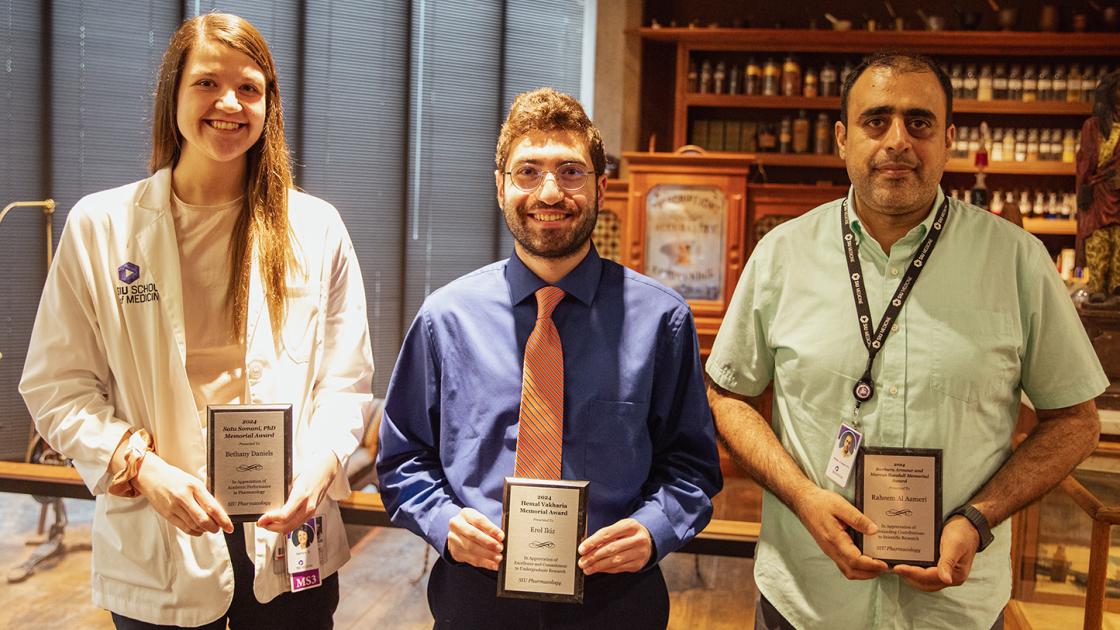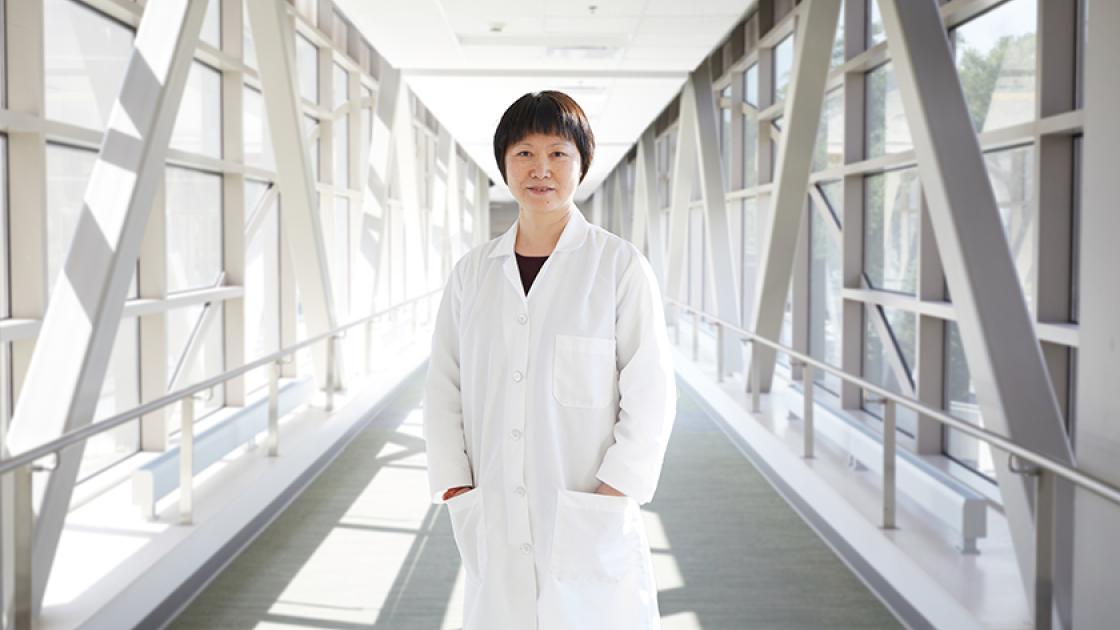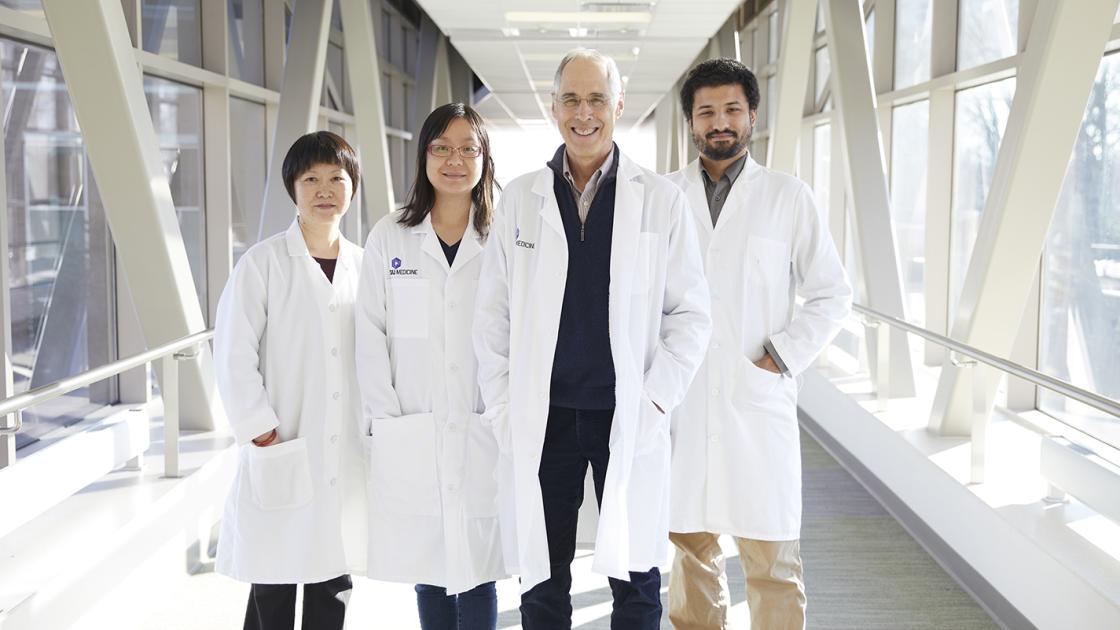About me
Contact:
217.545.2195
Professional Experience:
Southern Illinois University School of Medicine, Springfield, IL, Distinguished Scholar and Res. Professor of Pharmacology & Surgery 2012-
Southern Illinois University School of Medicine, Springfield, IL, Distinguished Scholar and Professor of Pharmacology, 2004-2012
Research Interest and Specialties:
Recent Research Activities in the Caspary Auditory Neurobiology Laboratory
Aging: Age-related hearing loss impacts 30-50% of individuals over 65 years of age. An age-related loss of speech understanding causes many elderly, cognitively intact, individuals to withdraw from active participation in society. Our recent studies focused on the nature of inhibitory receptors and how they influence processing of acoustic information in the auditory thalamus (MGB). We specifically characterized role of extrasynaptic GABAA receptors in the auditory thalamus. We described the properties of the tonic currents mediated by these receptors using molecular neurochemistry and slice recordings from adult and aged animals. These studies describe a profound (50%0 age-related loss in the number and function of extrasynaptic GABAA receptors in auditory thalamus.
Tinnitus: Aside from studies on the impact of aging the Auditory Neurobiology Laboratory examines animal models of tinnitus. This “ringing in the ears” affects 10% of the general population and an overwhelming number of military personnel. In a parallel series of studies on extrasynaptic GABAA receptors in animals with tinnitus, we found an increase in the sensitivity of these receptors. These tinnitus results, support the thalamocortical dysrhythmia hypothesis underpinning tinnitus pathology at the level of thalamus. Recordings from awake rat auditory thalamus showed increased spontaneous activity and increased sound-evoked activity in neurons in MGB of animals with tinnitus. Many tinnitus-related response changes correlated directly with the tinnitus score of the individual animal. Animals showing more tinnitus, showed more bursting and more spontaneous activity, etc.
Role of Cholinergic Receptors in Aging and Tinnitus: Recent work has focused on cholinergic inputs to the auditory thalamus. When a signal is difficult to detect or unusual, brainstem cholinergic neurons are activated by descending pathways from the auditory cortex and the hippocampus. The present studies attempt to identify the location and age-related changes of nicotinic cholinergic receptors in the auditory thalamus.
Animal Models of Auditory Processing: Understanding the role of bottom-up and top-down processing of acoustic information is critical to understanding age-related loss of speech understanding. Collectively these studies of plasticity in models of tinnitus and aging will both in vitro and in vivo electrophysiologic methods with a range of molecular neurochemical and imaging techniques to address these important neuroscience questions.
Videos
Gender
Education & training
Publications
Chronic sound-induced tinnitus and auditory attention in animals
T Brozoski, K Wisner, M Randall, D Caspary
Neuroscience 407, 200-212
M Ghimire, R Cai, L Ling, TA Hackett, DM Caspary
Journal of Neuroscience 40 (30), 5724-5739
SP Kommajosyula, EL Bartlett, R Cai, L Ling, DM Caspary
The Journal of physiology 599 (24), 5465-5484
Neuronal nicotinic acetylcholine receptor partial agonists as therapeutics for chronic tinnitus
D Caspary, T Brozoski, B Cox
US Patent App. 17/428,164
Mechanisms of GABAergic and cholinergic neurotransmission in auditory thalamus: Impact of aging
BD Richardson, SY Sottile, DM Caspary
Hearing research 402, 108003
M Ghimire, R Cai, L Ling, KA Brownell, KW Wisner, BC Cox, TA Hackett, ...
Frontiers in Neuroscience 17, 1197909
M Ghimire, R Cai, L Ling, KA Brownell, TA Hackett, DA Llano, ...
The Journal of physiology
Click here to see entire publication list.
Grants
Grants Received (Active):
DOD-Congressionally Directed Medical Research Programs; PR180160 - Nicotinic Receptor in Tinnitus: Auditory Cortex and Selective Desensitizing Nicotinic Agents, $391,754 ADC, 9/1/19 - 8/31/22, Principal Investigator
National Institutes of Health NIDCD, RO1 DC00151- Coding in Auditory Neurons: Effects of Amino Acids, $2.4M 12/1/23 - 11/31/28, Principal Investigator (Years 38-43)
Office of Naval Research, Targeting attentional mechanisms in tinnitus, $879,325, 4/22/16 - 4/21/19, Principal Investigator
Awards
Founders Day Award, New York University, New York
Certificate of Merit, American Speech and Hearing Association
Advisor to the Committee on Hearing and Bioacoustics, National Academy of Science
Claude Pepper Award from the National Institute on Deafness and Other Communicative Disorders
Council Member, Association for Research in Otolaryngology
Member, Board of Directors, Center for Neural Communication Technology-University of Michigan
Nineteenth Outstanding Scholar, Southern Illinois University, 2003
Distinguished Scholar, Southern Illinois University, 2004
Sigma Xi Kaplan Research Award, 2005
Life Science Innovator, Illinois Biotechnology Industrial Organization-2006
Teacher of the Year, Southern Illinois University School of Medicine, 2009
Guest Editor: Special Issue of Hearing Research- Aging and Hearing, 2010
Board Member, Tinnitus Research Consortium, 2005-2016
Scientific Advisory Committee, American Tinnitus Association, 2005-2012
Related articles

Pharmacology department honors 2024's top lab researchers

Ling receives 2023 Toth Award for research support



